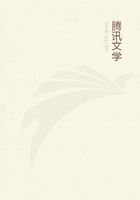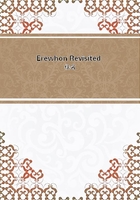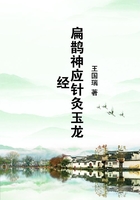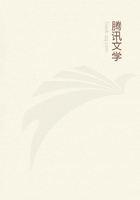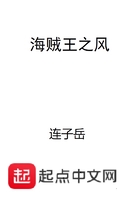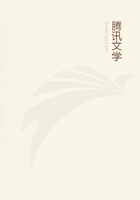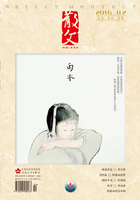It is a privilege to have a share in it. We in Boston are constantly indebted to you for doing our work." My experience in securing money convinces me that the first type of man is growing more rare all the time, and that the latter type is increasing; that is, that, more and more, rich people are coming to regard men and women who apply to them for help for worthy objects, not as beggars, but as agents for doing their work.
In the city of Boston I have rarely called upon an individual for funds that I have not been thanked for calling, usually before I could get an opportunity to thank the donor for the money. In that city the donors seem to feel, in a large degree, that an honour is being conferred upon them in their being permitted to give. Nowhere else have I met with, in so large a measure, this fine and Christlike spirit as in the city of Boston, although there are many notable instances of it outside that city. I repeat my belief that the world is growing in the direction of giving. I repeat that the main rule by which I have been guided in collecting money is to do my full duty in regard to giving people who have money an opportunity for help.
In the early years of the Tuskegee school I walked the streets or travelled country roads in the North for days and days without receiving a dollar. Often as it happened, when during the week I had been disappointed in not getting a cent from the very individuals from whom I most expected help, and when I was almost broken down and discouraged, that generous help has come from some one who I had had little idea would give at all.
I recall that on one occasion I obtained information that led me to believe that a gentleman who lived about two miles out in the country from Stamford, Conn., might become interest in our efforts at Tuskegee if our conditions and needs were presented to him. On an unusually cold and stormy day I walked the two miles to see him. After some difficulty I succeeded in securing an interview with him. He listened with some degree of interest to what I had to say, but did not give me anything. I could not help having the feeling that, in a measure, the three hours that I had spent in seeing him had been thrown away. Still, I had followed my usual rule of doing my duty. If I had not seen him, I should have felt unhappy over neglect of duty.
Two years after this visit a letter came to Tuskegee from this man, which read like this: "Enclosed I send you a New York draft for ten thousand dollars, to be used in furtherance of your work.
I had placed this sum in my will for your school, but deem it wiser to give it to you while I live. I recall with pleasure your visit to me two years ago."
I can hardly imagine any occurrence which could have given me more genuine satisfaction than the receipt of this draft. It was by far the largest single donation which up to that time the school had ever received. It came at a time when an unusually long period had passed since we had received any money. We were in great distress because of lack of funds, and the nervous strain was tremendous. It is difficult for me to think of any situation that is more trying on the nerves than that of conducting a large institution, with heavy obligations to meet, without knowing where the money is to come from to meet these obligations from month to month.
In our case I felt a double responsibility, and this made the anxiety all the more intense. If the institution had been officered by white persons, and had failed, it would have injured the cause of Negro education; but I knew that the failure of our institution, officered by Negroes, would not only mean the loss of a school, but would cause people, in a large degree, to lose faith in the ability of the entire race. The receipt of this draft for ten thousand dollars, under all these circumstances, partially lifted a burden that had been pressing down upon me for days.
From the beginning of our work to the present I have always had the feeling, and lose no opportunity to impress our teachers with the same idea, that the school will always be supported in proportion as the inside of the institution is kept clean and pure and wholesome.
The first time I ever saw the late Collis P. Huntington, the great railroad man, he gave me two dollars for our school. The last time I saw him, which was a few months before he died, he gave me fifty thousand dollars toward our endowment fund. Between these two gifts there were others of generous proportions which came every year from both Mr. and Mrs. Huntington.
Some people may say that it was Tuskegee's good luck that brought to us this gift of fifty thousand dollars. No, it was not luck.
It was hard work. Nothing ever comes to me, that is worth having, except as the result of hard work. When Mr. Huntington gave me the first two dollars, I did not blame him for not giving me more, but made up my mind that I was going to convince him by tangible results that we were worthy of larger gifts. For a dozen years I made a strong effort to convince Mr. Huntington of the value of our work. I noted that just in proportion as the usefulness of the school grew, his donations increased. Never did I meet an individual who took a more kindly and sympathetic interest in our school than did Mr. Huntington. He not only gave money to us, but took time in which to advise me, as a father would a son, about the general conduct of the school.
More than once I have found myself in some pretty tight places while collecting money in the North. The following incident I have never related but once before, for the reason that I feared that people would not believe it. One morning I found myself in Providence, Rhode Island, without a cent of money with which to buy breakfast. In crossing the street to see a lady from whom I hoped to get some money, I found a bright new twenty-five-cent piece in the middle of the street track. I not only had this twenty-five cents for my breakfast, but within a few minutes I had a donation from the lady on whom I had started to call.
At one of our Commencements I was bold enough to invite the Rev.

